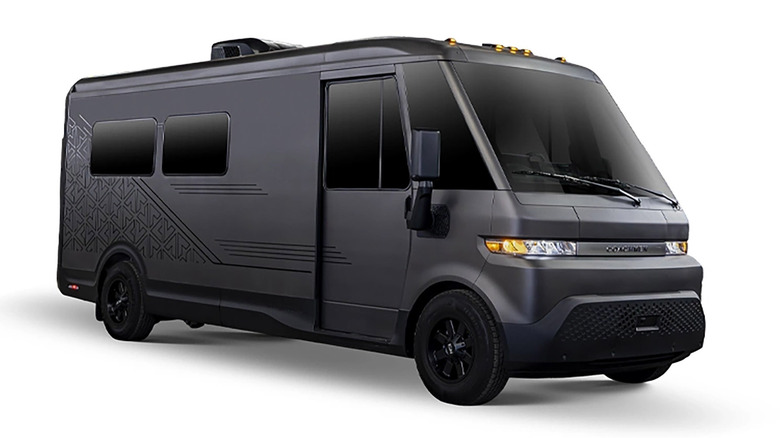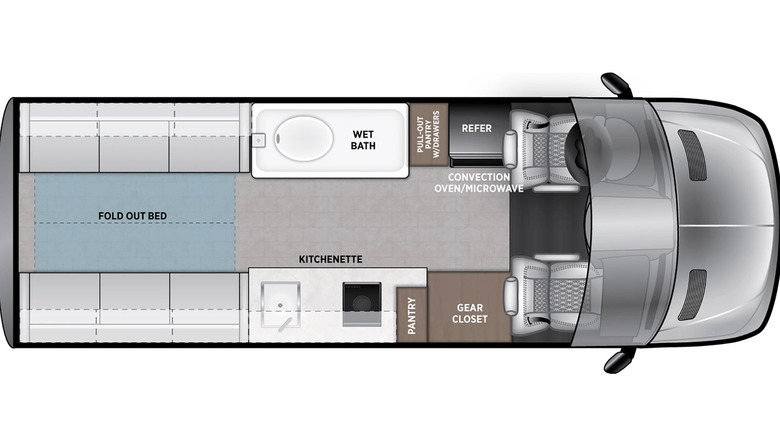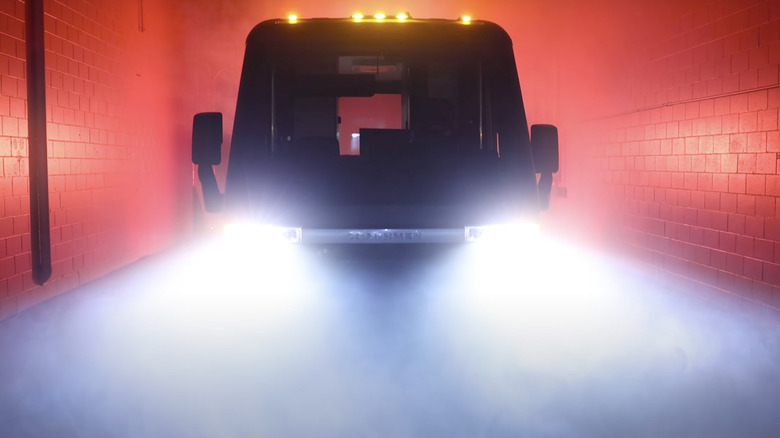This $150,000 Chevy-Based Electric RV May Be Dead Before It Even Gets Off The Ground
With the rapid spread of battery electric powertrains across the American automotive industry in recent years, it's not surprising to hear that an all-electric RV segment is attempting to take shape. To this point, the options for all-electric RVs and camper vans have mostly consisted of smaller EV passenger or cargo vans that can be refitted inside for camping duty. But some RV makers have been attempting to expand the segment with larger, more dedicated electric RV offerings.
One of those RV-makers is Coachmen, the Indiana-based company that's been building RVs of all shapes and sizes since 1964. Coachmen recently introduced an ambitious new $150,000 all-electric class B motorhome called the RVEX, which is a significant milestone for both the company and the young EV RV industry — or at least it would have been. In an unwelcome development that came just weeks after Coachmen officially debuted its bold new RV, General Motors just announced that they are ending production of the commercial van on which the RVEX is based.
Ahead of its time?
Sitting beneath the recreational cabin of the Coachmen RVEX is Chevrolet's BrightDrop van architecture. BrightDrop launched back in January 2021 as a GM-backed startup during the heights of the industry's push toward electrification. The plan was to build all-electric commercial delivery vans to compete with the likes of Rivian, with both short and long wheelbase models eventually making it to production.
We recently had the chance to spend a week reviewing the 2025 BrightDrop 400 and found the delivery van to offer a very tranquil and user-friendly van experience. Coachmen simply took those same underpinnings to create RVEX, adding a well-appointed living space in place of BrightDrop's cargo area. When outfitted to be a fully-equipped camper, the RVEX has an EPA-rated driving range of 270 miles before needing to recharge. This is a reasonable range considering its size and weight, but still a potential hindrance for those planning long, cross-country RV trips.
But for now at least, the matter of the RVEX's real-world driving range may end up being a moot factor. General Motors has announced that it is ending BrightDrop van production in the face of a slow market and a changing regulatory environment. This is just the latest in many shifts currently happening across the auto industry as automakers roll back some of their ambitious plans for EV production.
What's next?
As for electric RVs, Coachmen isn't the only company affected by GM's move. A startup company called Grounded also builds electric RVs on the BrightDrop platform at a slightly higher price point, and will have to find a new van architecture if it wants to continue the mission. Full-scale production for the RVEX wasn't planned to start until 2026, but it seems that for the time being, there may still be enough existing BrightDrop vans out there to keep production on track until supply dries up.
But overall, the RVEX's story may be over before it really had a chance to begin. This doesn't mean, however, that the idea of an all-electric RV will be abandoned completely. As with gasoline-powered RVs, it's simply a matter of finding the right van or truck platform to build on. But where could that platform come from?
Tesla is of course one of the world's leaders in EV technology, not just with its normal cars and SUVs but now with its heavy-duty Cybertruck and semi as well. While the company so far hasn't shown any interest in expanding into the recreational vehicle market, there are lots of reasons why we think Tesla should consider the RV market. Even if it involves simply providing a base platform rather than building the entire RV itself. For now, though, the loss of the BrightDrop platform will be a significant blow to an electric RV market that's still trying to get off the ground.


